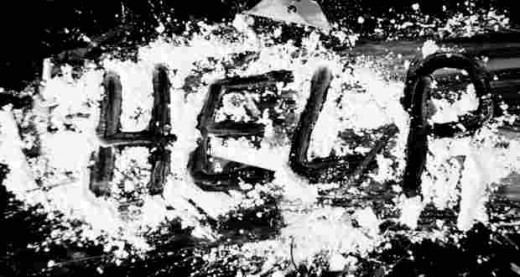Dealing with Denial - How to Persuade an Addict to Seek Treatment

A Friend is the Most Important Person
You will quickly learn that convincing takes a bit more than suggesting. This is because the addicted person will see you as a danger to status quo. Something caused his addiction. He has found a perfectly workable solution to the problem and now you come and cause trouble. Dealing with it will be painful and it cannot be tolerated. His preferred method of defending against your efforts will be denial.
Most of the guidance available is written by therapists for other therapists. Of course, you are not a trained therapist and no one expects you to be. Your job is not to cure your friend but to convince him or her to seek help. Right now, quite possibly, you could be the most important person in his or her life, an awesome responsibility indeed.
To get you started, it is probably useful to learn a bit about addiction itself as well as your biggest obstacles, denial and enabling.
Addiction is always a response to some psychological issue
What is Addiction?
The oldest view is that addiction is a matter of self-control. If you cannot control yourself, you need to be punished. That view is still widespread today. A more modern view, that addiction is a chronic brain disorder, a disease, and therefore covered by insurance. At least now you have access to treatment. This view is beginning to give way to a third view. This view sees addiction as learned behavior in response to some psychological issue in your life. Treatment success in the first view hinges on the effectiveness of severe consequences. The second view leaves little room for hope, only management of an incurable disease. You would continually have to actively resist relapse. The third view offers more hope. If addiction is learned, it can also be unlearned. The details about how this works is beyond the scope of this article, but all views claim successes in their respective treatment methods. Indeed, all may have a measure of validity to them. This is what makes addiction so complicated, but that is not all. A further complication is that addiction is often accompanied by one or more mental illnesses.
Most people are unaware how many behaviors, in a broad sense, fall in the category of addiction. One definition of addiction claims that it is normal behavior that has changed to the point where it begins to interfere with the person's life, work, school and relationships. It involves a loss of control. Again, our goal here is not to cure addiction. We just need to be able to recognize it when we see it. We will just mention the most well-known of them. There are essentially two types:
- Process addictions such as gambling, eating, sex/porn, Internet
- Substance addictions such as drugs, alcohol, nicotine
Denial
There are different levels of denial. All of them prevent the addict from getting treatment. Your job is to try to expose the denial and steer the addict towards treatment.
Denial is the urge to turn off the pain associated with serious or overwhelming problems
Humans have several defense mechanisms that automatically kick in when confronted with serious danger like a lion suddenly popping up on the path in front of you. What would you do, run or fight? There is no time to reflect on the answer, no time to weigh the pros and the cons. Your brain will automatically and instantly make that choice for you. Being confronted with the consequences of addiction may not seem as serious as a lion popping up in your view, but the defense mechanism getting triggered when confronted is the same. For the addict, dealing with it seems just as dangerous as an encounter with a lion. This is why it is so difficult to get someone to seek help. Because you and I do not have that experience ourselves, it is difficult for us to imagine what is going on in their head. Another major difference is that while you and I effortlessly think about the past, the presence and the future, an addict typically only thinks about the present. The only thing on his mind is to turn off the pain. Therefore he cannot focus on making changes.
Some addictions can exist invisibly for a very long time until they begin to interfere with the person's normal life functions. Therefore, it can be difficult to know when it is appropriate to get involved. Does it matter that the person needs to sleep late on Sunday morning to get rid of a hangover? Does it matter that he is facing his third DWI? Does it matter that you found him passed out in the driveway this morning?

Addiction is always a response to some psychological issue. When confronted, the addict will experience strong feelings of shame, guilt, fear or anger. The way he will respond depends on which feelings get triggered resulting in one of several denial patterns. If we can somehow determine the feeling and the denial pattern, we have a chance to expose the denial and hopefully put the person on a path to recovery.
By the time you get involved, it is likely that the person has become very skilled at hiding their true feelings, even from themselves, or putting up some reactive defense. Of course, you are not a trained therapist and you may not recognize what is going on right away. That is why we are here, to learn to recognize some of these patterns and hopefully come up with some appropriate responses.
Denial or resistance can take several forms:
- Refusal. Me? Addicted? No way!!!
- Motivation. I know I have a drinking problem, but I'm not really motivated to deal with it right now.
- Pain. I know I have a problem and I know I need help, but dealing with it is more painful than I can handle.
Left to their own devices, the denial period could take a really long time and may not end until the person hits rock bottom and even then resistance to treatment might still prevail. However, there are also instances where the person simply recovers when the underlying psychological issue changes or disappears. It is for this reason, it is not enough to force or convince the person to change their behavior. A trained therapist will be able to uncover the root cause of the addiction. Once exposed, it is much easier to deal with or eliminate it. Ignore this step and relapse is likely to occur, but now we are seriously outside the scope of this article. Let us turn back to what you can do to help. Our job is to raise rock bottom so that the landing will be a little softer.
Test Your Own Reality
One obstacle to success is you. Just like the addict, how you interact with people is likely to be largely on autopilot. Autopilot works well when it comes to breathing and escaping danger. Autopilot takes care of those situations whether we think about them or not. When it comes to interacting with people, autopilot does not work quite as well. Have you ever said something and immediately wish you had not? We all have. Everything that comes out of your mouth, indeed everything you do or say every day, impacts someone else around you somewhere. When that someone is a loved one on a path of self-destruction, most likely, what you do and say suddenly becomes of vital importance. The slightest hint that the addict is about to get blamed, shamed or attacked will send him or her into defense mode and the game is lost before it begins.
Another obstacle is your innate desire to help. You may not realize it, but sometimes help actually makes things worse. Parents foregoing basic necessities to bail out their addicted offspring is a much too common phenomenon. We call this enabling. When you make it possible for the addict to continue his behavior, you are part of the problem.

The Strategy
Love is quite possibly the most powerful emotion on the planet. Love will be our tool of choice. Who can resist a room full of people who all declare their love for you and want to help?
In order to avoid triggering the person's defense mechanism, it is vitally important to think about and create a plan for how you will proceed.
Yes, you can do this on your own, but it is much more effective to identify all the stakeholders and not only get them involved but also get them on the same page; have a common strategy. We use a similar technique in restorative justice, but now we are getting off track again.
There are three stages to getting your friend or relative to accept help:
Planning
Who should be a part of the team? Who is close with the person and has influence over him? Who will he listen to the most? Does anyone have special powers that can be used as leverage. Spouses and bosses can offer not to cut them off, that they will still be there or that the job will still be there when he returns from treatment.
It is not helpful to confront a person who suffers from anxiety in a large group. On the other hand, the expression of love may not be convincing enough in a small group. Strike a balance.
You will need to do three things:
The expression of love
Each stakeholder will write a letter meticulously cleaned for any hint of shame, blame or attack
- Expressing their love for the addict
- How the behavior has impacted the addict
- How it has impacted the relationship with him or herself
- Encouragement to seek treatment
Plan B - Leverage
Stakeholders will write a second letter. This letter, in positive terms, expresses how much they value him and that they want him back after treatment, but also that there are consequences to refusing treatment.
Prepare to execute
- Make reservations at a treatment center
- Prepare assurances that the world will continue to revolve while he is gone
- Pack a bag with necessities
- Arrange for transportation to the center
The Actual Intervention Meeting
Prepare an event where the addict is sure to be present. A surprise birthday party or something like that should do the trick.
Read the letters you have prepared for the addict. Leave nothing to chance. Script everything. Prepare responses to every conceivable objection. Leave no option for anger to enter the conversation.
Post-Intervention Support
Be prepared that the addict will try to use every opportunity to back out of treatment. He may try to recruit allies who will support him in returning to his old behavior. You need a strategy to deal with such possibilities.

Of course, sometimes even the most meticulously laid plans fail. We are going to look at a couple of the options you have.
What to Do if the Intervention Fails?
The idea of intervention was to lighten the consequences of not seeking treatment. When the intervention fails, the addict is left to face consequences you have no control over. Hopefully, it will not be death or serious injury to himself or others. That does not mean you should abandon him and leave him stranded. Now it is more important than ever that you stay with him constantly assuring him that you are there to help, but at the same time, you cannot support or enable his behavior.
What if You are the Only One Who Cares About the Person?
I am sure you realize by now that helping an addict is no small task and you may see your team members disappear and your efforts to motivate them bear no fruit or, even worse, conflicts pop up within the group. Or you may see initial enthusiasm wane as the members realize the magnitude of the project. Even if you have to write every single letter yourself; even if you have to take care of every single detail yourself, it is much better to keep them involved than to go it alone. Try to keep your group together at all cost.
When all else fails, try to stay in contact with the addict on a daily basis. Assure him that you love him and that you are there to help. When the consequences finally catch up with him, you are there to cushion the blow, pick up the pieces and arrange for appropriate treatment.
Hire a Professional Interventionist
If you think this is too overwhelming and you can afford it, absolutely hire a professional interventionist to guide you. After all, someone's life is on the line.



